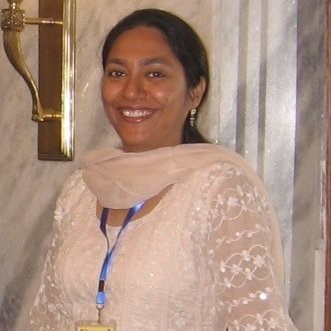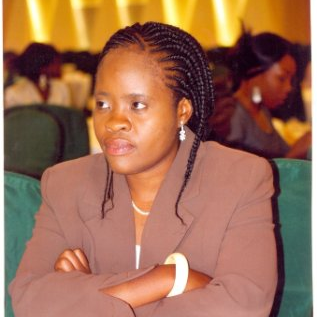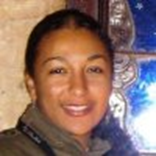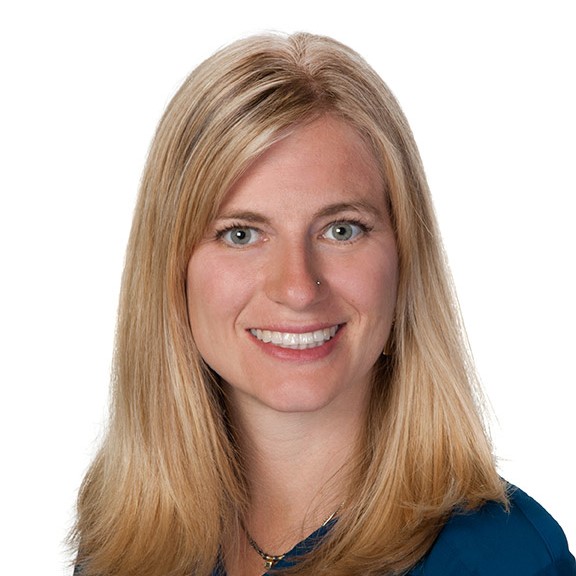Jul 17, 2017 | by The SEEP Network
Programs designed to achieve women's economic empowerment are based on diverse perspectives. Some believe that a shift in gender norms is necessary for successful acquisition of skills, breaking gender stereotypes, sustaining the effort of empowering girls and women, and promoting women in workforce and business. Others contend that, due to the urgency of securing livelihoods for girls and women, rather than waiting for gender norms to change, investing in skill development will, ultimately, manifest in a shift in gender norms.
This webinar explored the question "What should be prioritized for investment , direct interventions with women and girls or changing social norms?". Participants learned about the challenges and opportunities faced by various skills and enterprise development programs when implementing projects that seek to change gender relations. The webinar focused on the intersection between direct interventions and broader activities that aim to tackle social norms and highlighted lessons from the field, including India and Zambia.
This webinar was hosted as part of the WEE Forum Webinar Series.
Raj Gilda, Co-Founder, Lend A Hand India
 Raj is a banker turned social entrepreneur and co-Founder of Lend A Hand India. He leads the team for resource mobilization and external relations for Lend A Hand India apart from managing its presence in USA and UK. He has worked across Asia, Europe and North America and brings 20 years of varied experience in the fields of education, banking, insurance, and information technology. Prior to leaving corporate sector in 2011 to focus full time on Lend A Hand India, he spent ten years in New York working with Citibank and Deloitte Consulting. Raj was appointed by Government of India as a member of National Skill Development Agency (NSDA). He is an advisor to Rashtriya Madhyamik Shiksha Abhiyaan (RMSA), Government of Maharashtra and member of state level committee to effectively utilize CSR resources for education sector. He was also selected by the UK Government, as a Chevening Gurukul Scholar (2012) at the London School of Economics. He was recognized as a top 100 graduate alumni of University of Texas at Austin and received an award for exceptional community service from the President of the United States. Raj is an Electronics Engineer from the University of Pune, a CFA, and and holds an MBA from the University of Texas at Austin.
Raj is a banker turned social entrepreneur and co-Founder of Lend A Hand India. He leads the team for resource mobilization and external relations for Lend A Hand India apart from managing its presence in USA and UK. He has worked across Asia, Europe and North America and brings 20 years of varied experience in the fields of education, banking, insurance, and information technology. Prior to leaving corporate sector in 2011 to focus full time on Lend A Hand India, he spent ten years in New York working with Citibank and Deloitte Consulting. Raj was appointed by Government of India as a member of National Skill Development Agency (NSDA). He is an advisor to Rashtriya Madhyamik Shiksha Abhiyaan (RMSA), Government of Maharashtra and member of state level committee to effectively utilize CSR resources for education sector. He was also selected by the UK Government, as a Chevening Gurukul Scholar (2012) at the London School of Economics. He was recognized as a top 100 graduate alumni of University of Texas at Austin and received an award for exceptional community service from the President of the United States. Raj is an Electronics Engineer from the University of Pune, a CFA, and and holds an MBA from the University of Texas at Austin.
Prerna Kumar, International Center for Research on Women
 Prerna Kumar has over 13 years of experience in social sciences research. She has had extensive experience of research, program evaluation, policy review, behavior change communication, capacity building and advocacy. She has primarily worked in the field of Public Health with focus on HIV, Maternal and Child Health, Sexual and Reproductive Health and Rights; Gender; and engaged with issues of child rights, bonded labor, livelihood and climate change. Her background in Social Work and Population Studies equip her with both quantitative and qualitative research skills. She is an ardent believer in evidence based planning and development of intervention program. Her own Ph.D. dealt with issues of agency and empowerment among single migrant women working in new industries which has both theoretical and programmatic implications on conceptualizing empowerment. At ICRW, she's working on Plan it which is an intervention research project which aims to implement and test the effectiveness of a curriculum that will enable young girls to make an effective transition from education to employment within an ecosystem approach of creating a positive environment through key stakeholders. She is a fervent advocate of sustainable and scalable intervention programs and thus prior to ICRW supported a mHealth startup in India. She has also worked with organizations like Johns Hopkins University, Center for Communication Programs; BBC Media Action; International Planned Parenthood Federation; Clinton Health Access Initiative; Asian Forum of Parliamentarians on Population and Development; Ernst and Young; Action Aid; and Tata Institute of Social Sciences.
Prerna Kumar has over 13 years of experience in social sciences research. She has had extensive experience of research, program evaluation, policy review, behavior change communication, capacity building and advocacy. She has primarily worked in the field of Public Health with focus on HIV, Maternal and Child Health, Sexual and Reproductive Health and Rights; Gender; and engaged with issues of child rights, bonded labor, livelihood and climate change. Her background in Social Work and Population Studies equip her with both quantitative and qualitative research skills. She is an ardent believer in evidence based planning and development of intervention program. Her own Ph.D. dealt with issues of agency and empowerment among single migrant women working in new industries which has both theoretical and programmatic implications on conceptualizing empowerment. At ICRW, she's working on Plan it which is an intervention research project which aims to implement and test the effectiveness of a curriculum that will enable young girls to make an effective transition from education to employment within an ecosystem approach of creating a positive environment through key stakeholders. She is a fervent advocate of sustainable and scalable intervention programs and thus prior to ICRW supported a mHealth startup in India. She has also worked with organizations like Johns Hopkins University, Center for Communication Programs; BBC Media Action; International Planned Parenthood Federation; Clinton Health Access Initiative; Asian Forum of Parliamentarians on Population and Development; Ernst and Young; Action Aid; and Tata Institute of Social Sciences.
Namaya-Morero Mbikusita-Lewanika, Private Enterprise Program Zambia
 Namaya Morero Mbikusita-Lewanika has over ten years of experience in financial services, project design & implementation, business planning and business development service provision, working predominately with micro, small and medium entrepreneurs. Currently she manages the Nyamuka Zambia Business Plan Competition, which is part of Private Enterprise Programme a five year DFID funded programme managed by Nathan Associates in collaboration with DAI, aimed at stimulating entrepreneurship in Zambia. Nyamuka was established to encourage positive attitudes towards entrepreneurship, to kick start a solid pipeline of entrepreneurs and to find individuals with great business ideas helping them turn those ideas in reality. A huge part of the competition has involved encouraging women and young people to share and develop their business ideas. This has led to the establishment and growth of female-led enterprises. The use of dedicated communications platforms has been vital in promoting the participation of women in the competition. Over the last three years, Nyamuka has seen a marked improvement in both the numbers and quality of business ideas from women as a result of this deliberate effort. Namaya previously served on the Board of the Economics Association of Zambia. In addition, Namaya holds an Mphil from Maastricht School of Management, an MBA from Mississippi State University, a BSc in Management Information Systems (Magna Cum Laude) from Mississippi University for Women and an Associate in Arts (Magna Cum Laude) from Hinds Community College.
Namaya Morero Mbikusita-Lewanika has over ten years of experience in financial services, project design & implementation, business planning and business development service provision, working predominately with micro, small and medium entrepreneurs. Currently she manages the Nyamuka Zambia Business Plan Competition, which is part of Private Enterprise Programme a five year DFID funded programme managed by Nathan Associates in collaboration with DAI, aimed at stimulating entrepreneurship in Zambia. Nyamuka was established to encourage positive attitudes towards entrepreneurship, to kick start a solid pipeline of entrepreneurs and to find individuals with great business ideas helping them turn those ideas in reality. A huge part of the competition has involved encouraging women and young people to share and develop their business ideas. This has led to the establishment and growth of female-led enterprises. The use of dedicated communications platforms has been vital in promoting the participation of women in the competition. Over the last three years, Nyamuka has seen a marked improvement in both the numbers and quality of business ideas from women as a result of this deliberate effort. Namaya previously served on the Board of the Economics Association of Zambia. In addition, Namaya holds an Mphil from Maastricht School of Management, an MBA from Mississippi State University, a BSc in Management Information Systems (Magna Cum Laude) from Mississippi University for Women and an Associate in Arts (Magna Cum Laude) from Hinds Community College.
Fatimah Kelleher, Independent Consultant
 Fatimah Kelleher is an international women's rights and social development consultant with sixteen years experience working with a variety of international, regional and national stakeholders in Africa, South Asia and the Caribbean. With multi-disciplinary expertise in research, project design, programming, monitoring and evaluation, and policy advocacy, Fatimah specialises in women's economic empowerment and justice, education, and health. Her experience within women's economic empowerment and justice includes employment and equitable access to markets, gender justice and trade policy/export promotion, women's empowerment and justice within market systems approaches, rural development, enterprise development, gender and women's rights in private sector development, women cross-border traders, and gender responsive budgeting and investment. As an educationalist Fatimah specialises in equity and equality issues within education provision, including girl-child, adolescent and women's adult education, women and the teaching profession, reaching marginalised and remote communities, non-formal education, skills acquisition and training, and gender responsive schooling. She has also conducted research and delivered technical assistance in the area of maternal and child health. With regional and country level experience across Africa, Asia and the Caribbean, Fatimah has worked extensively in Nigeria, particularly in the north, and has also worked in Sudan, Ethiopia, Uganda, Pakistan, India, Liberia and Guyana. Organizationally, past and current experience has involved work with local civil society organisations, UN agencies including UNESCO, UNICEF and UNCTAD, the Commonwealth Secretariat, NGOs, and DFID. Fatimah has published widely in her areas of work, delivering empirical research, policy documents, papers, and media articles.
Fatimah Kelleher is an international women's rights and social development consultant with sixteen years experience working with a variety of international, regional and national stakeholders in Africa, South Asia and the Caribbean. With multi-disciplinary expertise in research, project design, programming, monitoring and evaluation, and policy advocacy, Fatimah specialises in women's economic empowerment and justice, education, and health. Her experience within women's economic empowerment and justice includes employment and equitable access to markets, gender justice and trade policy/export promotion, women's empowerment and justice within market systems approaches, rural development, enterprise development, gender and women's rights in private sector development, women cross-border traders, and gender responsive budgeting and investment. As an educationalist Fatimah specialises in equity and equality issues within education provision, including girl-child, adolescent and women's adult education, women and the teaching profession, reaching marginalised and remote communities, non-formal education, skills acquisition and training, and gender responsive schooling. She has also conducted research and delivered technical assistance in the area of maternal and child health. With regional and country level experience across Africa, Asia and the Caribbean, Fatimah has worked extensively in Nigeria, particularly in the north, and has also worked in Sudan, Ethiopia, Uganda, Pakistan, India, Liberia and Guyana. Organizationally, past and current experience has involved work with local civil society organisations, UN agencies including UNESCO, UNICEF and UNCTAD, the Commonwealth Secretariat, NGOs, and DFID. Fatimah has published widely in her areas of work, delivering empirical research, policy documents, papers, and media articles.
Erin Markel, Principal Consultant, MarketShare Associates
 Erin specializes in market systems, inclusive business and economic empowerment with a focus on women and youth. Erin is a Principal at MarketShare Associates (MSA). Erin has led a variety of consultancies including work with the USAID LEO initiative, World Bank, TradeMark East Africa, DAI, CARE and the International Youth Foundation. Prior to founding MSA, Erin was a Program Manager, Market Development and Access to Finance at the Aga Khan Foundation Canada. Past experience includes working for Women's World Banking, ProMujer and the Aspen Institute. Erin holds a Master of International Affairs in Economic Development from Columbia University.
Erin specializes in market systems, inclusive business and economic empowerment with a focus on women and youth. Erin is a Principal at MarketShare Associates (MSA). Erin has led a variety of consultancies including work with the USAID LEO initiative, World Bank, TradeMark East Africa, DAI, CARE and the International Youth Foundation. Prior to founding MSA, Erin was a Program Manager, Market Development and Access to Finance at the Aga Khan Foundation Canada. Past experience includes working for Women's World Banking, ProMujer and the Aspen Institute. Erin holds a Master of International Affairs in Economic Development from Columbia University.
Categories: Women and Girls Women's Economic Empowerment English Unpublished Resources Published Blogs/Webinars Webinar Womens Economic Empowerment Webinar Resources WebinarsBlogs

1621 North Kent Street, Ste 900,
Arlington, VA, 22209
P 202.534.1400
F 703.276.1433
Website Photos: © mari matsuri
